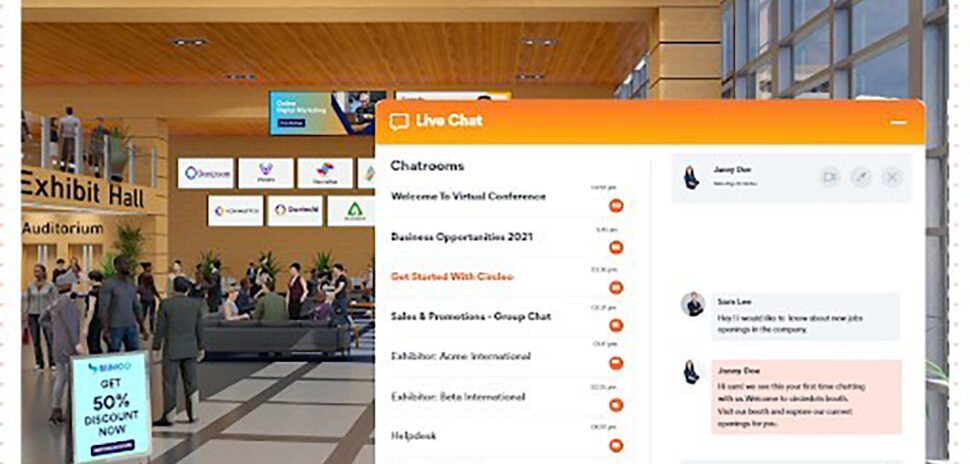We asked Lee Wagner how he characterized the commercial real estate market as we head into Q3. The principal at the Site Selection Group didn’t mince words. In fact, he summed it up in just eight of them:
Office: Unstable.
Industrial: Strong.
Retail: Struggling.
Multifamily: Stable.
How much of that does he attribute to the pandemic? “All of it, at this point,” he said.
Wagner, who leads the Dallas-Fort Worth brokerage division of the location advisory and economic incentive firm, focuses mostly on corporate real estate services. He’s been directly involved in transactions “totaling more than $350 million and 3 million square feet of space for companies,” according to the company.
We asked the market expert how Dallas stacks up to other major metros, how the pandemic is impacting corporate relocations, and what opportunities he’s seeing. In line with his market assessment above, Wagner is optimistic about the industrial sector in the near term. “The amount of project activity is the highest we’ve seen,” he said.
Wagner also noted bright spots in e-commerce, food production, data centers.
Read more in our Q&A.
 How would you compare the Dallas region to other major metros in terms of a relocation market?
How would you compare the Dallas region to other major metros in terms of a relocation market?
Dallas-Fort Worth has a lot of benefits which has enabled the region to attract a lot of small and large projects. Some of the main positive factors include the central time zone, accessibility, labor costs, education system, quality of life, and cost of living.
Has the pandemic highlighted particular strengths or weaknesses?
Major metro areas have critical mass and during the pandemic much of Dallas-Fort Worth has had to stay at home. As a result, we have seen real estate facilities from office to retail remain closed—or have had to shut [their] doors for good. Has it created any new opportunities? If you are a tenant or user of office space and need space, it’s a great time to find new options because there are plenty, along with good rental rates for the tenant to support those options. The market has definitely shifted from a landlord-favored market to a tenant’s market.
What other challenges to the site selection process have you seen from the pandemic?
The biggest challenge during the pandemic is the ability to tour cities and buildings, especially for national and international searches. Otherwise, a lot of the market research and negotiations can be done remotely.
Where was the relocation market heading prior to March?
Companies continued to relocate to Dallas-Fort Worth and Texas from states like California, New York, and Illinois which have less desirable business climates. In a post-COVID-19 environment, we believe there will be another wave of relocations.
What new challenges and opportunities are you encountering in the current market?
The new challenge is: What does the configuration of office space look like in the future, and what size space do companies really need? The opportunity is: If a company is thriving during this time, there is good real estate to lease or own with favorable pricing.
Are there reasons for optimism for the rest of 2020 and going into 2021?
The industrial sector is where there is a lot of optimism for the near term. The amount of project activity is the highest we’ve seen. The projects range from consumer products, e-commerce, food production, and various industrial manufacturing needs.
What kinds of locations are companies seeking?
That really depends on the industry and project type. The Southeast U.S. continues to attract manufacturing. E-commerce projects are locating in the typical logistical hubs like Dallas, Atlanta, or Phoenix. IT-related projects continue to locate into the tech markets like Dallas, Denver, Atlanta, and Salt Lake City.
What trends are you starting to see, in terms of company needs?
Labor continues to be a major challenge, which has eased due to the spike in unemployment. However, skilled labor will always be a challenge to attract and retain.
What incentives are most important to companies right now, and how have they changed in the pandemic?
Two of the big drivers in economic incentives are job creation and capital investment which have been historically linked to a facility located within specific municipalities. This allows you to secure tax abatements, tax credits, infrastructure grants, and utility rebates that are specifically tied to the building. Due to the work-from-home trend, it will become much more challenging to incentivize companies if you can’t link the employees and capital investment to a specific jurisdiction.
What sectors are more pandemic proof?
E-commerce, food production, data centers.
What do you expect to see in terms of company decisions in the near- to mid-term?
The decision-making process will be much slower in the near term as companies try to figure out where the market is headed. Once that is resolved there should be a lot of growth opportunity in the right industries.
How do you expect this may impact the Dallas region long-term?
Dallas is in a good spot due to the benefits we outlined earlier. However, the cost of living, labor costs, and real estate cost continue to increase which are making the Dallas-Fort Worth region less attractive from an economic perspective.
A version of this story first published in the Summer 2020 edition of the Dallas-Fort Worth Real Estate Review.
Sandra Engelland contributed to this report.
Read more on how DFW is a place for the future from these commercial real estate experts:
‘North Texas Has a Lot Working in Our Favor’
Mike Berry, President, Hillwood
‘There Will be New Opportunities’
Shane Shepard, Economic Development Director, City of Lancaster
‘It Is Reasonable To Expect That the Area Will Fare Especially Well’
Ray Perryman, The Perryman Group
Inquiries by economic development agencies “are up by a significant multiple over this period last year”
Joel Pustmueller, Managing Director, Brokerage, JLL
‘We’re Seeing More Companies Investing in Their Existing Footprint’
Beth Bowman, President and CEO of Irving Economic Development Partnership
‘We Believe Cities Like Frisco Will Benefit by the Return of Growth To the Suburbs’
Jason Ford, Economic Developer and Vice President, Frisco EDC
The Future Is Bright for Dallas-Fort Worth Corporate Relocations and Consolidations
Jeff Ellerman, Vice Chairman, CBRE
Read the digital edition of Dallas Innovates’ sister publication, the Real Estate Review, on Issuu.
Sign up for the digital alert here.
![]()
Get on the list.
Dallas Innovates, every day.
Sign up to keep your eye on what’s new and next in Dallas-Fort Worth, every day.



























